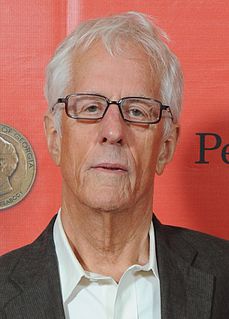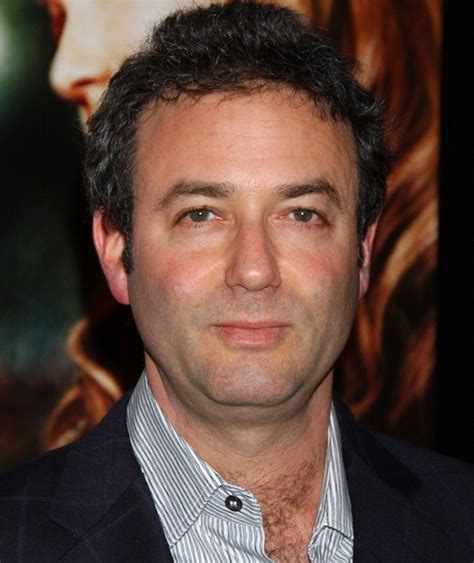A Quote by Nicholas Ozeki
A filmmaker has to have great vision in order to tell a compelling story that is both distinctive and stylistic. I remember playing all movies in my head hundreds of times before they were ever made. You have to see it in your imagination. It has to be real to you.
Related Quotes
You see, Dash -- I was never the girl in your head. And you were never the boy in my head. I think we both knew that. It's only when we try to make the girl or boy in our head real that the true trouble comes. I did that with Carlos, and it was a bad failure. Be careful what you're doing, because no one is ever who you want them to be. And the less you really know them, the more likely you are to confuse them with the girl or boy in your head.
You can't plan for people to like your movies. I knew that people were not going to run in droves to the theater for the 'In the Valley of Elah.' I knew they might not want to see it, but I still had to the movie; I felt very strongly about it. Wanting to keep telling a good story is what you want to do, a compelling story.
We always have visions, before a thing is made real. When we realize that although the vision is real, it is not real in us, then is the time that Satan comes in with his temptations, and we are apt to say that it is no use to go on. Instead of the vision becoming real, there has come the valley of humiliation.
It's funny: as a director, there are movies you make because you're passionate about getting your vision across, and you know that you're vision is different than anybody else. In those cases, you take the plunge, and it works, or it doesn't. You make the stylistic choices based on how you feel about the material.
I've found great virtue in two-thirds of the way into the message; right before I'm really want to nail home a point, pausing to tell a joke or to tell a light-hearted story, because I know my audience has been working with me now for 20 or 25 minutes. And if I can get them to laugh, get oxygen into their system, it wakes up those who might be sleeping, so there's something about using a story to draw people back in right before you drive home your final point. In that case I think it's real legitimate just to use a story for story's sake.
Creators, makers of the new, can never become obsolete, for in the arts there is no correct answer. The story of discoverers could be told in simple chronological order, since the latest science replaces what went before. But the arts are another story- a story of infinite addition. We must find order in the random flexings of the imagination.
You ever watch a football game and get totally into it? Why? It's not a real battle. It's just a game somebody made up. So how can you take it seriously? Or, you ever see a movie that made your heart about jump out of your chest? Or one that made you cry? Why? It wasn't real. You ever look at a photo of food that made your mouth water? Why? You can't eat the picture. . . . . . Same thing with water towers and God. I don't have to be a believer to be serious about my religion.
A chief cause of unhappiness is what I call mental movies. Mental movies are a misuse of the imagination. You know how it goes. You have a painful experience with someone, then run it over and over in your mind. You visualize what you said, what he did, how you both felt. As awful as it is, you feel compelled to repeat the film day and night. It is as if you were locked inside a theatre playing a horrible movie.
I've made movies that were adaptations and I've been kind of frustrated by the process because, you know that old axiom, 'It's never as good as the book'? It's often true because nothing competes with your own imagination. When you're reading a book and you imagine something in your head, nothing's going to compete with that.
































